How to detect nutritional deficiencies in the cat
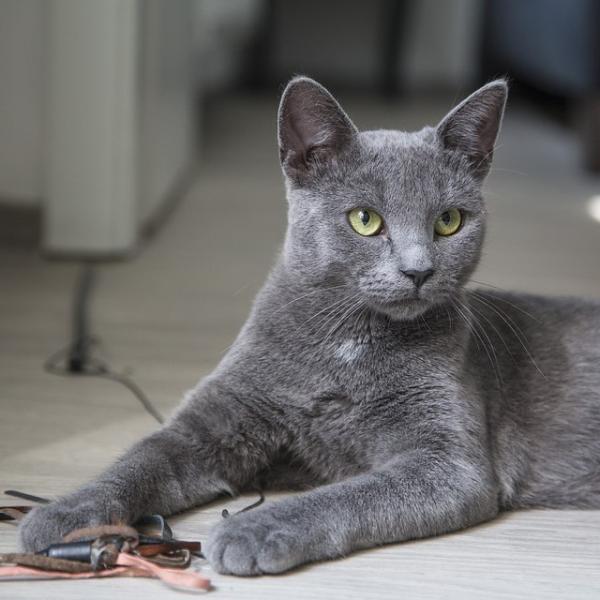
The continued use of very basic or poor quality feed can affect the health of our cats causing nutritional deficiencies.
When this happens, several symptoms appear in the cat that show nutritional deficiencies in the cat. It can also happen that some type of digestive disease, or parasites affect the health of the cat and cause nutritional deficiencies.
With the intention of helping you, we publish this article to indicate you how to detect nutritional deficiencies in the cat.
Inadequate feeding
Usually the nutritional deficiencies in the cat are due to the intake of Feed unbalanced, common fact among low quality feed. Very basic feeds in which the nutritional balance is conspicuous by its absence.
Another type of diet that despite the goodwill of the caregivers is deficient in nutrients are the homemade diets. These homemade diets are excessively rich in phosphorus and deficient in calcium, which produces chronic renal failure.
Another serious error that occurs in some homemade diets is the absence of taurine in its composition. Taurine is an essential element for the proper nutrition of cats. It is found in cow’s liver, and to a lesser extent in chicken liver.
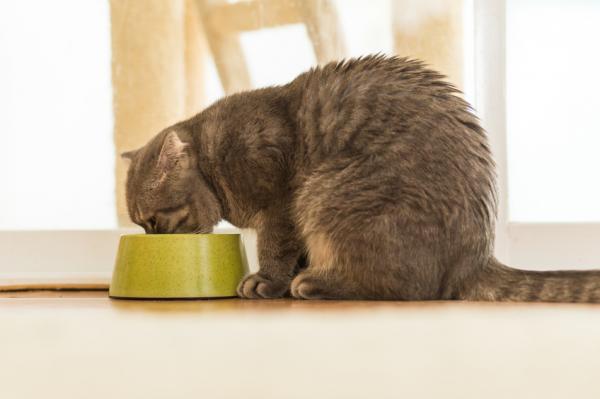
6 symptoms of nutritional deficiencies
To know how to detect nutritional deficiencies in the cat, it will be basic to review the most common symptoms of nutritional deficiencies among the cats that are the following, pay attention:
- Cloth without shine: The hair is opaque and rough.
- Appetite Disorders: episodes of unbridled consumption occur, followed by abulia when eating.
- Skin disorders: Dermatitis, seborrhea or dandruff are usually caused by nutritional deficiencies.
- Alterations in stool: Diarrhea or constipation are usually associated with nutritional deficiencies.
- Sudden changes in body weight: Obesity, or sudden weight loss, are clear signs of poor nutrition.
- Abnormal behavior: Poor nutrition promotes behavioral changes in the cat.
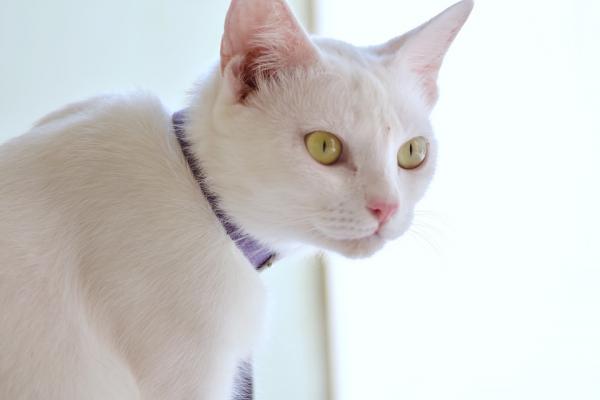
Food allergies
Sometimes cats develop food allergies. They are not frequent excess episodes, but when they occur they can be serious. They are usually due to an allergic reaction to a protein in a given food, which causes an allergic inflammation in the cat. The usual symptoms are:
- Dermal problems
- Recurrent otitis
- Vomiting and diarrhea
- Continuous trichobezoars
Find out more about food allergies in cats and do not hesitate to go to the veterinarian if you suspect that your cat may be suffering from this problem.
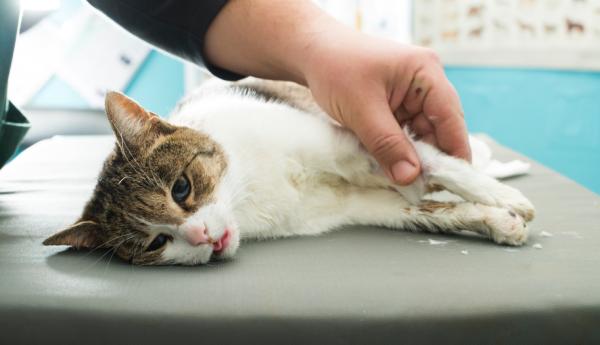
Deficiencies in carbohydrates
The Carbohydrates they are macronutrients responsible for the energy balance in the cat. If there are deficiencies in these elements, the cat will show apathetic, weak, without energy and over time suffer from ketonic disorders. Your breath will smell like acetone.
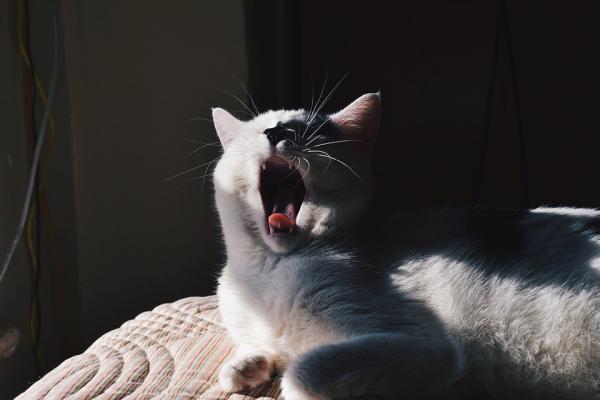
Protein deficiencies
If they exist protein deficiencies in the feeding of the cat, the animal will suffer various disorders because the proteins are responsible for regenerating body structures, forming new tissues, and protection against possible infections. The white blood cells and the immune system depend on the proteins. The usual symptoms of protein deficiencies in cats are:
- Developmental disorder
- Loss of muscle mass
- Recurrent infectious diseases
- Alterations in the epidermis and the mantle
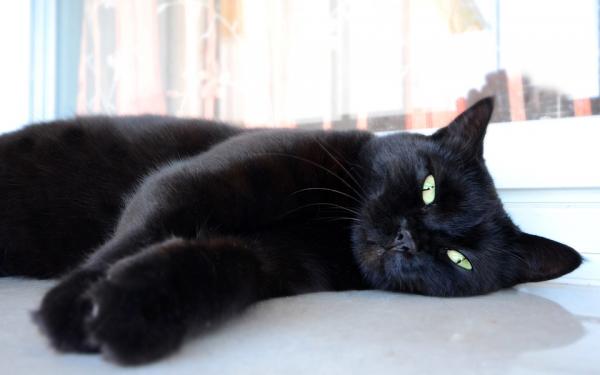
Deficiencies in lipids
The fats (lipids), are the essential responsible for the creation of cell membranes that serve to help protect the organs of the cat and transport the fat-soluble vitamins. The lack of lipids causes the following symptoms:
- Weight loss
- Dry coat
- Seborrhea and desquamation in the epidermis
- Recurrent infectious diseases
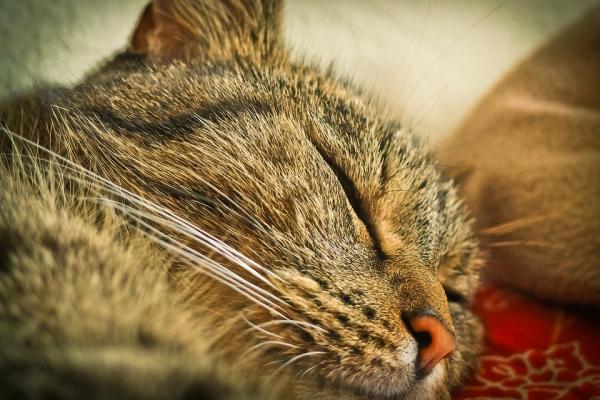
Vitamin deficiencies
Vitamins are about essential micronutrients for the correct chemical reactions present in the feline organism. Vitamin deficiencies in the cat cause the following symptoms:
- Dermatitis
- Absence of appetite
- Blood coagulation problems
- Low body temperature
- Neurological abnormalities
- Impoverishment of the mantle
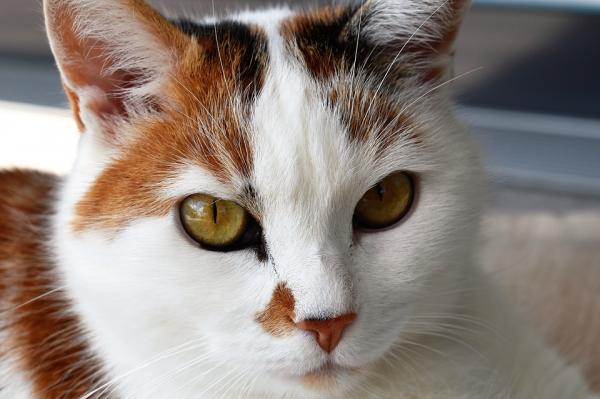
Deficiencies in trace elements
The trace elements are the essential minerals that the body needs for its proper functioning. The main symptoms that produce deficiencies in trace elements are:
- Anemia
- Weakness
- Delays in growth
- Dry dermis and hair loss
- Alterations in skeleton and musculature
- Continuous infectious diseases
- Restless character
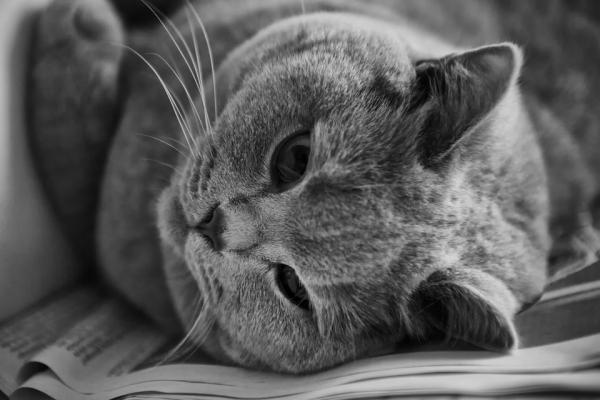
Correction of nutritional deficit
You will have noticed that different nutritional deficits can cause similar symptoms. For this reason, in case of any strange symptom, you should go to your vet to assess the health status of your gatom, especially if I had known how to detect nutritional deficiencies in the cat.
Some analysis and deep recognition on the part of the professional will determine a diagnosis that heals your cat, and his nutritional deficit is over.
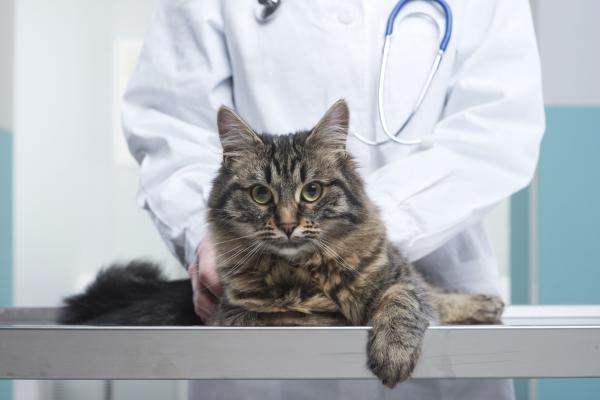
If you want to read more articles similar to How to detect nutritional deficiencies in the cat, we recommend that you enter in our section of Feeding problems.


